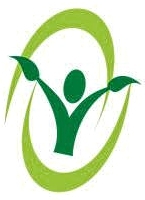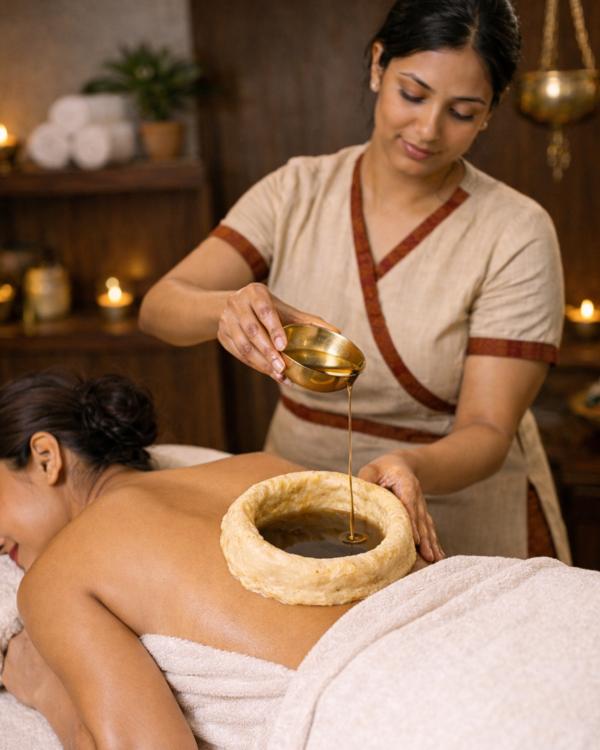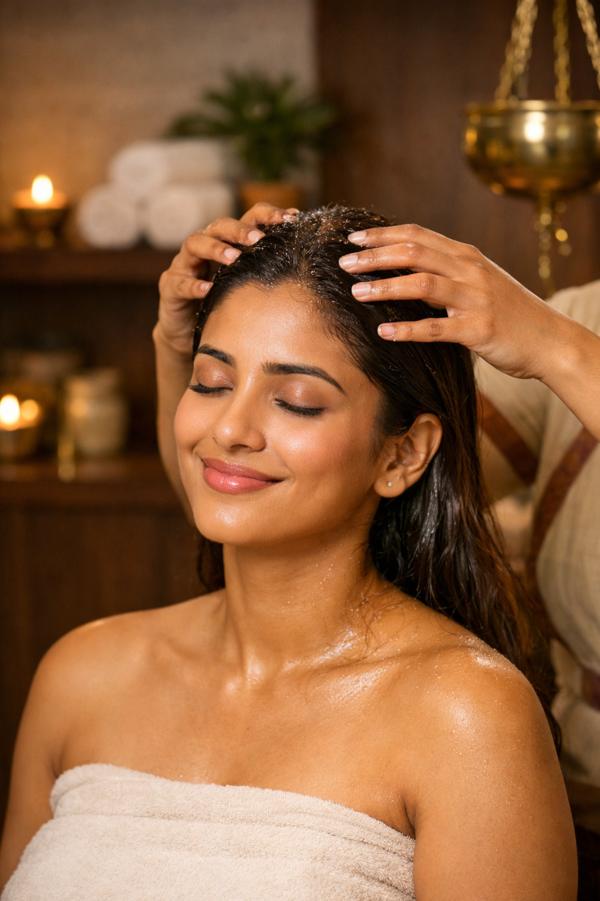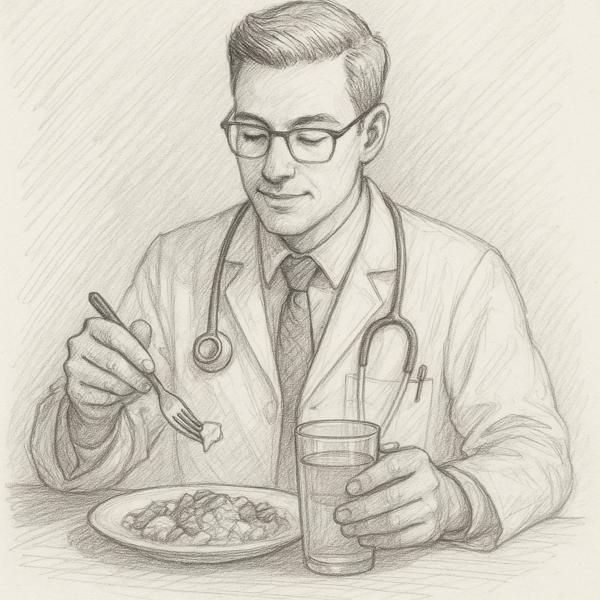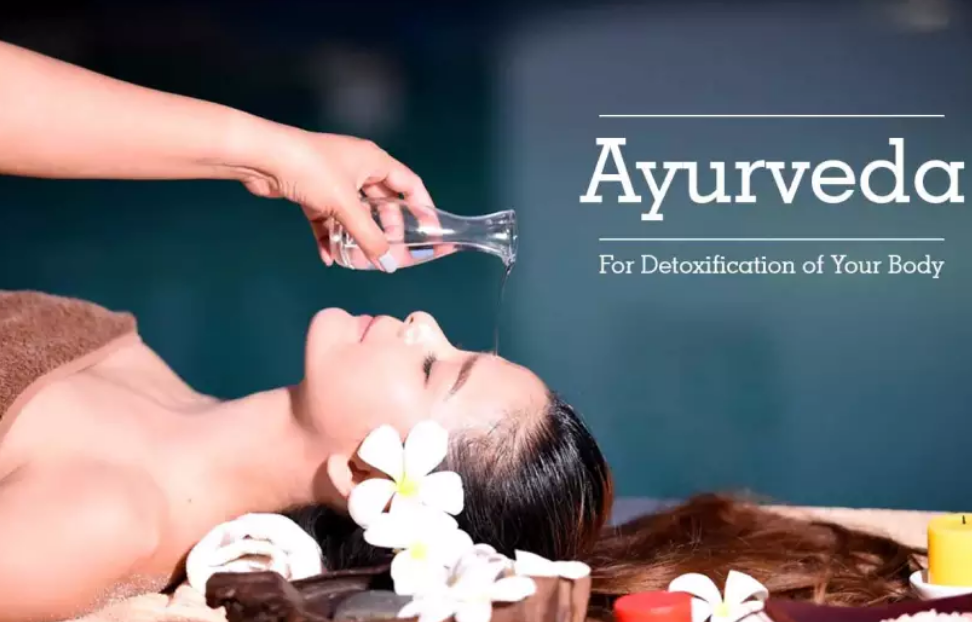
Panchakarma
What arePanchakarma treatments?
PanchaKarma means 5 actions.
The 5 possible actions that may be used in panchakarma are:
- Vamana (therapeutic vomiting for excess Kapha),
- Virechana (purgation – strong laxative for excess Pitta and Vata),
- Basti (medicated enemas for excess Vata),
- Rakta moksha (bloodletting – for excess Pitta, periphery diseases) – when excess toxins are carried in the blood to peripheral areas, ie skin diseases
- Nasya (nasal oil – Head, neck areas, lingering doshas) – improves the flow of prana, opens channels of the head, cleanses nasal tract and sinuses, helps allergic conditions
- additional body treatments such as abhyanga (warm oil body treatment), Shirodhara (streaming of warm oil on the forehead), and steams, fasting, exposure to wind/sun, exercise, taking herbs that destroy toxins are treatments that may be used in panchakarma
What is Panchakarma detox?
The removal of toxins is part of every PK. It is important to note that the therapies are powerful in PK and there must be a period of clearing out the body before moving into a full PK
What is done in Panchakarma?
- Some preparatory work of removing some poor diet options, substitution of better food options, herbs, and some lifestyle changes.
- Eating a simple diet for 8 – 14 days so that the body can concentrate its resources on removing toxins.
- Body treatments to provoke excess Vata, Pitta, and Kapha to move into the GI tract as well as toxins for removal.
- Taking medicated ghee in the morning for 4 – 8 days.
- Usually purgation with a strong laxative.
- Medicated enemas.
Do you lose weight with Panchakarma?
Most people lose weight on a panchakarma. It varies greatly depending on what was in the diet prior to the PK. PK primes the body for more significant weight loss especially if you stay with a simple diet for a longer period of time.
What are the benefits of Panchakarma?
According to studies by the National Institute of Health in 2002:
- Decreases cholesterol, by lowering toxic lipid peroxide levels
- Decreased the rate of platelet clumping and thus lymphatic congestion
- Decreases 14 major toxic and cancer-causing chemicals from the body tissues
- Significantly raised the good HDL cholesterol
- Lowered diastolic blood pressure
- 70% reduction of heavy metals, pesticides and other hazardous chemicals than the general population. There can be up to 80% fewer doctor’s visits. Pancha Karma recipients showed significantly less ageing.
- Reduces free radicals which are the leading cause of all disease
- Significant reduction in bodily complaints, irritability, bodily strain, psychological inhibition and emotional stability
- Decreased anxiety, reduced doctor visits
- removes the root cause of the disease
- improves immunity
- removes chemical toxins (environment pollution, drinking, smoking, chemicals in food, medicines)
- removes emotional toxins ( stress, jealousy, sorrows, fears, anger, relationships, job stress, grief, anxiety)
- reduce extra fat
- reverse ageing
- increase skin glow
- remove anxiety, sleeplessness/insomnia and mental problems
- balance blood circulation, high BP, low BP
- balance digestive system
- increase the loss of vigour and stamina
Does Panchakarma have side effects?
People generally feel some fatigue and may experience mild flu-like symptoms if there are a lot of toxins being released.
If the person does not do the proper preparatory work before the Panchakarma, then the toxins may flood the system too quickly and cause the person to develop strong flu symptoms.
What should we eat in Panchakarma?
The simple diet consists of cooked grains, moong beans or some other lentils, and cooked vegetables. Avoid cold foods, yeast, fats, dairy, processed foods, alcohol, and foods with high sugar.
Can Panchakarma be done at home?
Yes, people can do their own body treatments.
How long does Panchakarma treatment take?
The preparatory phase is generally 4 days to several weeks.
The actual cleanse itself takes 4 to 14 days.
The Post phase of slowing reintroducing your normal foods can take anywhere from 1-4 weeks.
How many types of Panchakarma are there?
Your ayurvedic professional will determine which of the 5 actions (vomiting, purgation, enemas, nasal oil, bloodletting) are appropriate for you.
To book your appointment or to consult online please call on 7420004242
